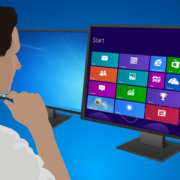Microsoft Officially Ends Anti-malware Support For Windows XP
If die-hard Windows XP users need another reason to upgrade their Operating System, here it is: today, Microsoft officially ends their support for anti-malware solutions for Windows XP users. No more updates to the Malicious Software Removal Tool or Microsoft Security Essentials. Discontinuing support for XP security effectively leaves users even more wide open to hacker attacks than before.
Recent statistics show that Windows XP users still account for a whopping 17% share of Operating Systems (OS) in use worldwide, with 6.5% residing in the U.S. alone. This means that worldwide, there are still over 250 million Windows XP users. That’s a lot of machines—no wonder criminals specifically target them.
Just to make your head spin, here’s another statistic that should make you nervous: Malwarebytes blog reports that 95% of ATMs still use Windows XP. And, don’t get me started on Point-of-Sale (POS) terminals where the majority are still on this dinosaur of an operating system.
Here is a simple fact for business owners and corporate executives: Windows XP leaves your network wide open to hackers, thieves, and other criminals and serves as a gateway to your most confidential information. Using XP will cause you to fail virtually any compliance rule or regulation out there. If you’re still using Windows XP, you are no longer PCI or HIPAA compliant—period.
Here’s another fact for those of us who are customers of these businesses: No matter how careful you are with your own security, others can break it by the actions they take or fail to take not only by exposing your confidential information on their own systems, but can pass viruses and malware to you that can damage your network as well.
Question: If your business still uses Windows XP and you suffer a data breach, how are you going to explain to your clients that you failed to keep their information safe by deciding to use an outdated and unsupported operating system? I for one would not want to be on the receiving end of that question. How about you?











